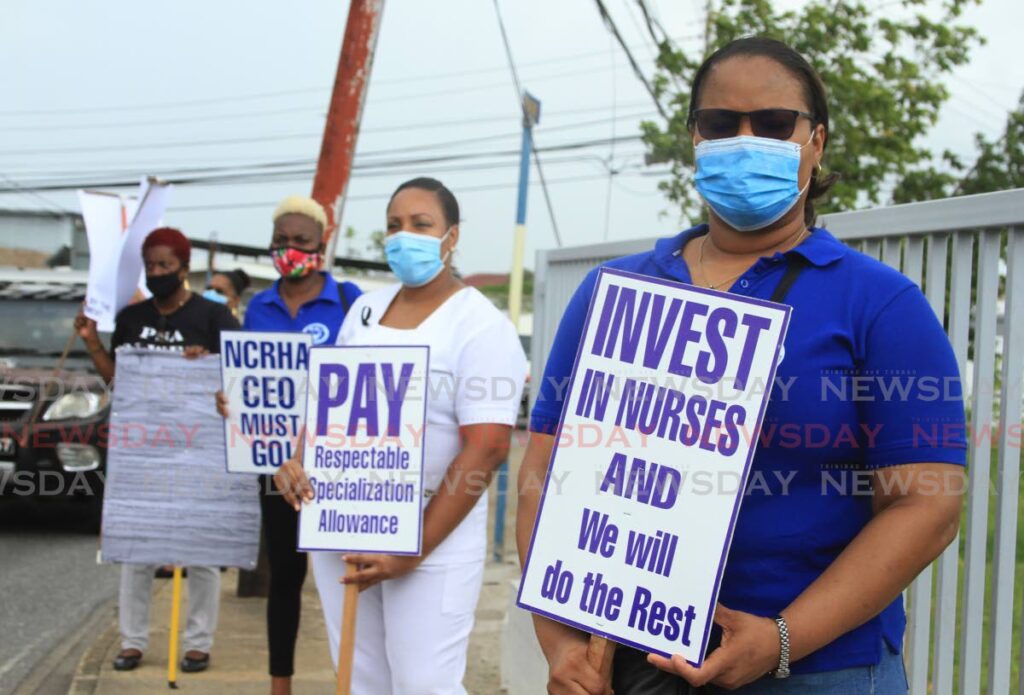Migrating nurses an opportunity for Government

THE EDITOR: There appears to be a great hullabaloo/controversy over the claim that nurses plan to leave the country and migrate to greener pastures in droves in response to the Government’s policy that public sector workers have to be vaccinated by January 15 or risk being furloughed.
The TT Registered Nurses Association has responded to this policy by linking it to migration caused by inadequate terms and conditions in order to gain public sympathy and pressure the Government in meeting its demands.
The association’s representative gave a somewhat ambivalent news release on the issue of nurses’ migration. She made it clear that past migration as well as future migration could not be linked to any vaccination policy but to very attractive remuneration packages being offered by developed countries, mainly the UK.
She indicated that this demonstrated the value these countries placed on TT nurses in contrast to the treatment meted out to them by the Government. The representative further alluded to the high regard in which local nurses are held externally due to their excellent training and experience.
My questions to the association are simple: Who is responsible for the development of local nurses and from whom was such experience gained? If the Government and people of TT are in large part responsible, then do they not deserve credit? Whereas the pandemic has placed additional burdens on health professionals, should it be viewed as an opportunity to press a government under extreme pressure to squeeze out greater benefits?
Any effort by the Government to satisfy the association’s demands will precipitate demands from other sectors that cannot be accommodated at this time.
What then should be the Government’s response? The country appreciates the efforts of health professionals under very onerous circumstances but at least they remain employed with an income. There are many without jobs and incomes, and the Government has to give great consideration to easing their plight.
Additionally, developed countries lose health professionals to wealthy Middle-East countries, hence the need to continuously recruit workers from less developed countries by luring their best and most experienced with super attractive benefits.
Poorer countries will never be able to compete with wealthier, more developed countries. Also, is there anything amiss with health professionals seeking greater financial rewards and international experience?
Can this not be viewed as presenting a win-win situation for all? The Government can reduce its unemployment levels by expanding its training of health professionals, acknowledging that some workers will migrate to take advantage of greater rewards. This may result in increases in remittances of foreign exchange.
The Government may also consider imposing a levy on recruiters for the role the country plays in such workers’ development, as is done in professional sport. But to suggest that the lower remuneration paid to any sector compared to what is offered by external employers is a measure of the value placed on that sector locally is indeed unfortunate.
Perhaps the Nurses’ Association should think again.
D THOMAS
Port of Spain


Comments
"Migrating nurses an opportunity for Government"